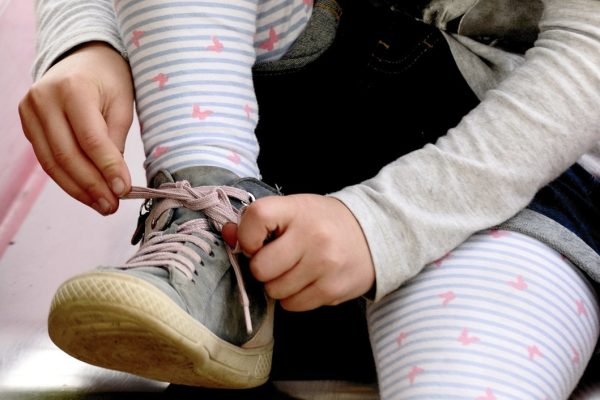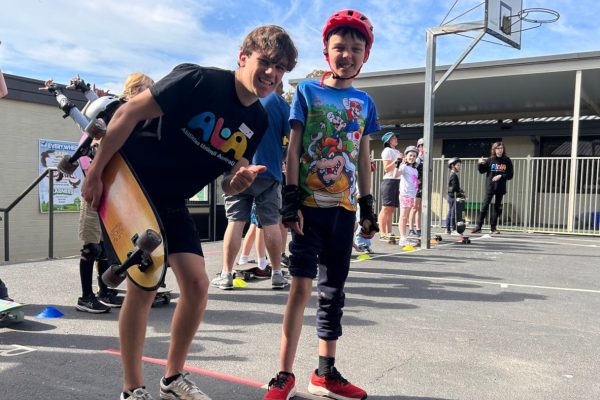
Supporting children who struggle with social anxiety
By Ariella Lew
Since our lives changed irrevocably during the pandemic, rates of social anxiety in children have reached an all-time high. This concerning trendis affecting children of all ages and those who are neurotypical as well as those who are neurodivergent.
People with social anxiety often experience significant distress and discomfort in social settings, such as meeting new people, speaking in public, participating in group activities, or even engaging in conversations.
While it’s normal for children to feel shy or nervous in certain social situations, social anxiety becomes a concern when it significantly interferes with a child’s daily life and functioning. Recognising the signs, understanding the causes, and implementing appropriate strategies are vital in ensuring that children can maximise their potential and navigate their world.
There are many signs of social anxiety in children, and these can manifest differently depending on the age and personality of the child as well as any diagnosis they may have.
Common things that you may notice include:
Avoidance of social situations: Children with social anxiety may avoid or feel extremely uncomfortable when they have to interact with peers or adults, such as at school events, parties, or even classroom activities. They may ask lots of questions before these events occur and may also experience separation anxiety if they are being left in one of these situations without a safe figure.
Physical symptoms: This is commonly reported as tummy aches or headaches when there is no medical cause. This is true of many anxiety disorders and is often used as an avoidance strategy.
Difficulty speaking: Some children may struggle to speak or express themselves in social settings, fearing they’ll say something wrong or be ridiculed by others.
As children grow and develop, the settings in which you would notice the anxiety can shift. Here are some signs to look out for by age group as well as some relevant social factors to consider:
Preschool age (3-5 years old)
Children may show reluctance to engage in group activities, playdates, or interact with unfamiliar people. They are likely
to want you to be present for the majority of the time and to take the lead in any social setting they find themselves in. Prior to Covid, if these behaviours were ongoing, this would often lead to an assessment for neurodivergence. As many of the children who are currently this age lacked opportunities for early socialisation (particularly in places with harsher lockdowns), the landscape has changed significantly in how their development is being viewed.
Primary school age
The transition into primary school should be an exciting one with opportunities for forming friendships, playground games and group projects. For a child who has social anxiety and is keen to avoid social situations, this transition can be highly provocative. For many children this is the first time that new independent friendships are being formed and children with social anxiety may have difficulty making friends. This can be because they struggle to initiate or maintain friendships due to fear of rejection.
High school age / adolescence
As children grow into teenagers and their independence grows, adolescents with social anxiety may withdraw from social activities, spending excessive time alone or avoiding group settings. This can affect their academic performance as well as avoiding anything that would draw attention to them for fear of being judged, criticised, or embarrassed by others. This can lead to adolescents retreating into an online world and spiralling into school refusal and other anti-social behaviours.
Once it is acknowledged that your child is experiencing social anxiety, there are a multitude of strategies that can assist them to learn to manage their social interactions in a way that causes them minimal distress. Whilst the following list is not exhaustive, it can be a good starting point and allow your child to feel heard, understood and in control.
UNDERSTANDING THEIR TRIGGERS
These differ from child to child and can be made worse by sensory sensitivities and rigidity in neurodivergent children. Once someone’s triggers are understood and parents /caregivers understand the impact a situation can have on them, allowances should be made in other parts of the day to accommodate the fact that they have faced something very difficult.
MAKING THINGS PREDICTABLE
A common theme in those with social anxiety is the dislike of the unpredictability that social situations can bring with them. E.g. who will be there, how long will it last for, exactly what will happen. Whilst we may not have all the answers, any information we can provide will allow them to feel more reassured and centred when going into a social environment.
PROVIDING COMFORT AND SAFETY
In any situation of high anxiety, the person with anxiety will be looking for things that make them feel grounded and safe. For young children, this could be a transition object or toy from home and for older kids this may be having their phone with them so they can retreat to the bathroom for 10 minutes and play a game! Another example of providing safety is reminding them which people there they are comfortable with. By accepting their need for safety and figuring out with them the best way to provide it, you validate them where they are.
REASSURANCE AND SUPPORT
No matter how a social situation goes and whether they thrived or not, letting your child know that you are proud of them for trying will go a long way to reminding them that you are an ally! This is also true when agreeing with them how long they have to do something for. Clear start and end times are important for people with social anxiety and they will rely on them to make it through.
PROFESSIONAL SUPPORT
Depending on the age of your child, this can take many different forms. It may be strategies for you to help your child navigate the world, it may be them working with someone to explore their triggers, it may be them working with someone on academic related work so that they feel less embarrassed to present in class. Whatever form it takes, having a professional on your child’s team who fully understands can be a game changer!
Social anxiety is something that is often minimised and written off as being due to other factors. However, recognising it in its’ own right, allows it to be dealt with in a way that is personalised for the child involved and gives them opportunities to shine.
Ariella Lew is the founder and director of Kids on Track Consultancy. Kids on Track consults with families, schools and allied health professionals around issues including but not limited to: behaviour support, family dynamics and parenting, disability, NDIS access and support co-ordinations, chronic conditions and more. kidsontrackconsultancy.com; [email protected]; 0416 612 676







